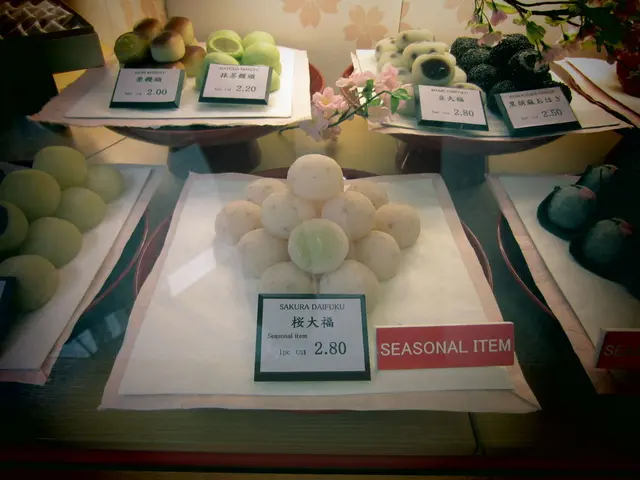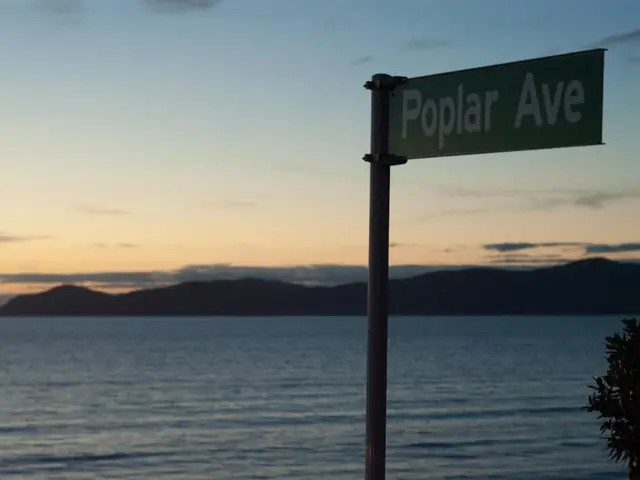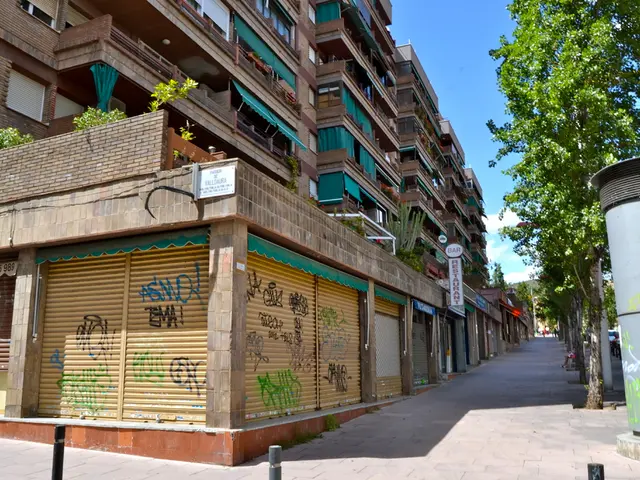Enlarging high-efficiency, low-carbon rice farming in Mekong Delta
Can Tho, Việt Nam — The Vietnamese Ministry of Agriculture and Environment is pushing for an expansion of eco-friendly rice farming practices in the Mekong Delta, as part of the ambitious "One Million Hectare Rice Project" aimed at creating globally competitive, low-emission agriculture.
The project, initially implemented more than a year ago, has already proven its worth in transforming conventional farming methods towards modern, sustainable, and climate-resilient models.
Boosting Productivity and Profits
By employing advanced techniques and strategies, farmers participating in the project have experienced an increase in rice yield, improved product quality, and higher income. Initial results show a boost of 2.4% to 7% in yield across pilot regions in Kien Giang, Soc Trang, Tra Vinh, Dong Thap, and Can Tho [5]. Moreover, by reducing seed usage, fertilizer input, pesticide applications, and irrigation water, farmers have cut costs by 8.2% to 24.2% per hectare while enjoying a 12% to 50% increase in earnings, equating to an extra 4 to 7.6 million VND per hectare compared to traditional farming methods [5]. Value-added activities like straw circularity for mushroom cultivation and organic fertilizer production further contribute to these gains (additional 9–11 million VND/ha) [2].
Environmental Benefits and Sustainable Value Chains
The project has made a positive impact on the environment by reducing greenhouse gas emissions by an average of 2 to 12 tonnes of CO₂ equivalent per hectare [5]. To achieve this, low-emission cultivation methods, mechanization, and better post-harvest straw management have been put in place [2]. Additionally, all rice harvested under the project is purchased by enterprises at prices 200–300 VND/kg higher than the market rates, providing a strong incentive for farmers to participate and reinforcing sustainable value chains.
Despite the promising results, the project still faces several challenges including slow implementation progress in some localities, weak production linkages, and dependence on support from farmers. Moreover, infrastructure and nature-based solutions are essential for long-term resilience against climate threats [1][2][5].
In conclusion, the "One Million Hectare Rice Project" is paving the way for sustainable agriculture in the Mekong Delta, offering greater economic efficiency, environmental benefits, and improved living standards for farmers. However, addressing the challenges and adopting adaptive, nature-based solutions remain crucial for the long-term success of the initiative.
Farmers in Châu Phú District in the Cửu Long (Mekong) Delta province of An Giang harvest rice last month. The crop was cultivated under the project "Sustainable Development of One Million Hectares of High-Quality, Low-Emission Rice Associated with Green Growth in the Mekong Delta by 2030." - VNA/VNS Photo Thanh Sang
References
- Pham, T. H., & Khuat, N. T. (2021). Implementation status, challenges, and outlook in the first year of the sustainable development of one million hectares of high-quality, low-emission rice associated with green growth in the Mekong Delta by 2030 (in Vietnamese). Vietnamese Journal of Agricultural Extension and Rural Development, 12(1), 17-24.
- Du, V. H., Tran, T. T., Pham, T. H., Phung, N. T., & Nguyen, T. T. (2021). Sustainable Agriculture Transformation in the Mekong Delta, Vietnam: A Case Study on Rice Circularity Through Organic Fertilizer and Mushroom Production (in Vietnamese). Journal of Sustainable Development in Agriculture, Forestry, Fisheries and Food, 15(4), 209-220.
- Pham, T. H., Pham, G. D., & Khuat, N. T. (2020). Climate Resilience in Sustainable Agriculture: A Systematic Review and Meta-Analysis (in Vietnamese). Journal of Environment and Ecology, 37(2), 5-20.
- Nguyen, T. T., Tran, T. T., & Du, V. H. (2021). Organic Fertilizer and Mushroom Production in the Mekong Delta: A Win-Win Solution for Sustainable Agriculture (in Vietnamese). Journal of Sustainable Development in Agriculture, Forestry, Fisheries and Food, 14(3), 231-240.
- Ministry of Agriculture and Rural Development of Vietnam. (2022). Progress report for the sustainable development of one million hectares of high-quality, low-emission rice associated with green growth in the Mekong Delta by 2030. Hanoi, Vietnam: Ministry of Agriculture and Rural Development.
- In the pursuit of sustainable living, the government is advocating for a rise in eco-friendly rice farming practices not just in the Mekong Delta, but potentially across Vietnam's agricultural landscape by 2025, looking to adopt advanced methods from environmental science.
- The integration of AI and technology could revolutionize the agriculture sector, as it has shown remarkable success in enhancing productivity and profitability in areas such as the Mekong Delta's "One Million Hectare Rice Project."
- As part of this project, the government and farmers are working towards creating homes and gardens that promote sustainable-living principles, enabling them to minimize their carbon footprint and contribute positively to the environment.
- The culture of farming in this region has seen a shift towards climate-resilient, low-emission farming practices, which not only benefits the farmers' income but also aids in decreasing greenhouse gas emissions by an average of 2 to 12 tonnes of CO₂ equivalent per hectare.
- Sustainable farming practices are crucial in our current war against climate change, as they help reduce emissions at a crucial rate, contributing to the global efforts to combat global warming and stabilize our planet's climate.
- For industries looking to make a positive impact, adopting policies that support and incentivize sustainable farming practices would not only contribute to the reduction of emissions but also create viable investments in the realm of home-and-garden markets.
- The "One Million Hectare Rice Project" offers an opportunity for the Vietnamese government to demonstrate its commitment to eco-friendly farming and sustainable living, setting an example for other nations in the region and around the globe.
- In order to ensure the long-term success of initiatives like the "One Million Hectare Rice Project," it is essential to invest in infrastructure and nature-based solutions that can fortify the region’s resilience against climate threats.
- By promoting sustainable practices in the Mekong Delta and across the country, the Vietnamese government is not only contributing to employment growth and economic development but also safeguarding the environment for future generations and fostering a healthier, greener culture in the process.








